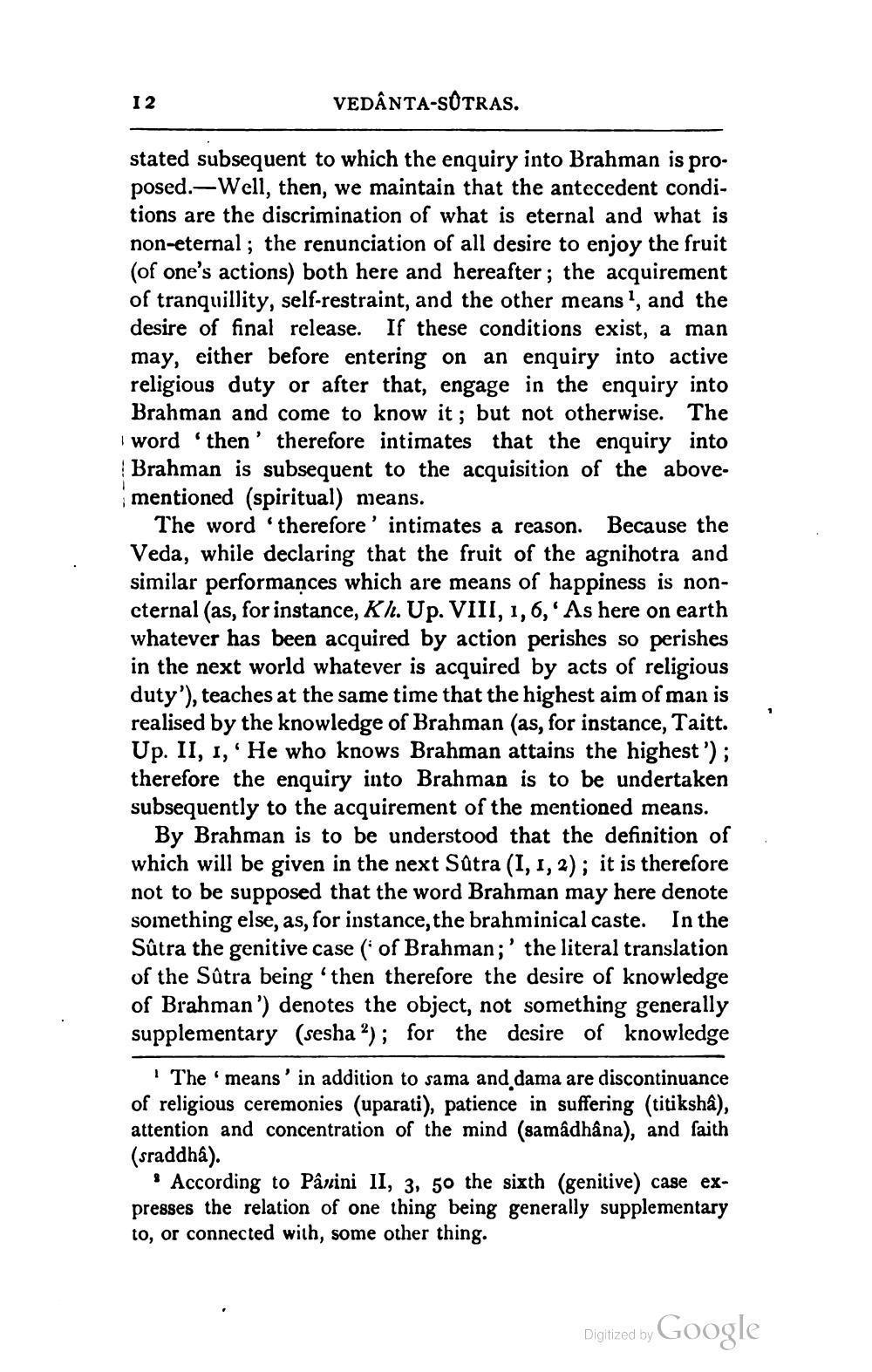________________
I 2
VEDÂNTA-SOTRAS.
stated subsequent to which the enquiry into Brahman is proposed.—Well, then, we maintain that the antecedent conditions are the discrimination of what is eternal and what is non-eternal; the renunciation of all desire to enjoy the fruit (of one's actions) both here and hereafter; the acquirement of tranquillity, self-restraint, and the other means ', and the desire of final release. If these conditions exist, a man may, either before entering on an enquiry into active religious duty or after that, engage in the enquiry into Brahman and come to know it; but not otherwise. The i word 'then therefore intimates that the enquiry into
Brahman is subsequent to the acquisition of the abovementioned (spiritual) means.
The word 'therefore' intimates a reason. Because the Veda, while declaring that the fruit of the agnihotra and similar performances which are means of happiness is noncternal (as, for instance, Kl. Up. VIII, 1,6, As here on earth whatever has been acquired by action perishes so perishes in the next world whatever is acquired by acts of religious duty'), teaches at the same time that the highest aim of man is realised by the knowledge of Brahman (as, for instance, Taitt. Up. II, 1, He who knows Brahman attains the highest'); therefore the enquiry into Brahman is to be undertaken subsequently to the acquirement of the mentioned means.
By Brahman is to be understood that the definition of which will be given in the next Sutra (I, 1, 2); it is therefore not to be supposed that the word Brahman may here denote something else, as, for instance, the brahminical caste. In the Sûtra the genitive case ( of Brahman;' the literal translation of the Sûtra being then therefore the desire of knowledge of Brahman') denotes the object, not something generally supplementary (sesha 2); for the desire of knowledge
"The means' in addition to sama and dama are discontinuance of religious ceremonies (uparati), patience in suffering (titiksha), attention and concentration of the mind (samadhâna), and faith (sraddha).
• According to Pânini II, 3, 50 the sixth (genitive) case expresses the relation of one thing being generally supplementary to, or connected with, some other thing.
Digitized by
Digized by Google




